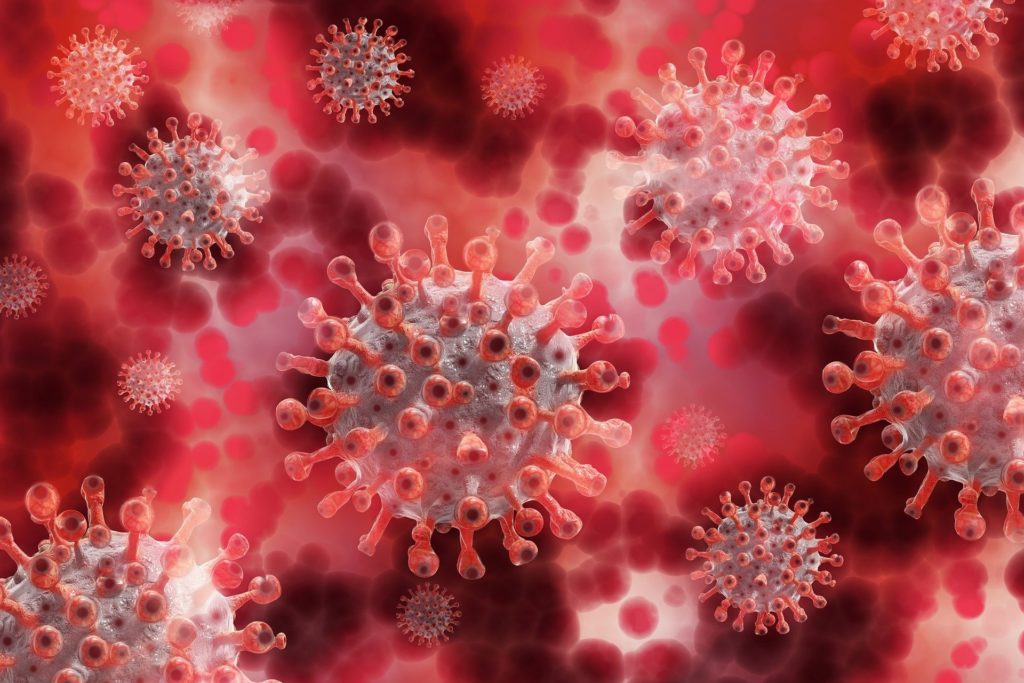
Near the end of 2019, a novel strain of coronavirus was found in Wuhan, Hubei Province, China [1]. The virus, now known as COVID-19, quickly spread across the globe, bringing with it unprecedented changes to modern life. In an attempt to control the pandemic, governments across the world issued stay-at-home orders, closed schools and businesses, and implemented social distancing measures.
These disease-containment efforts left millions of people isolated at home, and thousands laid off and out of work. Researchers are only beginning to explore the long-term effects of isolation and stress due to the pandemic, but early studies have found that one of the effects is a surge in heavier drinking during COVID-19.
Heavier Drinking During COVID-19
In March 2020, when most Americans were still under stay-at-home orders, research by Nielsen found that alcohol sales in the U.S. were up by 55 percent in relation to the same time last year [2]. The most significant increase in alcohol consumption was in 35-54-year-olds, with 25 percent admitting they had increased alcohol use during the COVID-19 pandemic, and 44 percent of those attributing this increase to stress [3].
Further, one recent study found that during the COVID-19 pandemic, women have significantly increased the number of alcoholic drinks they are consuming in a single sitting, while both men and women are drinking heavily more often due to the pandemic [4]. The same study revealed that among U.S. households with children at home during the pandemic, there was a marked increase in drinking behavior among adults.
Some of the most common reasons why alcohol consumption has increased during the COVID-19 pandemic are anxiety and stress, with many using alcohol to self-medicate and cope with their psychological distress. One of the dangers of turning to alcohol to relieve anxiety and cope with stressors is that, though alcohol provides temporary relief, it prolongs and increases distress in the long-term [5].
A study by the University of Carolina School of Medicine found that excessive drinking can rewire the brain and increase a person’s susceptibility to anxiety problems [6]. Further, though it may be tempting to have a few drinks to relieve stress and anxiety, using alcohol as an avoidance coping strategy is associated with a greater risk of developing alcohol-related problems in the future [7].
 Meaning those who are engaging in heavier drinking due to COVID-19-induced stress may suffer long-term effects and problems. During the China SARS pandemic of 2003, for example, research revealed that some people who started abusing substances during the pandemic continued to abuse substances, long after the pandemic was over [8].
Meaning those who are engaging in heavier drinking due to COVID-19-induced stress may suffer long-term effects and problems. During the China SARS pandemic of 2003, for example, research revealed that some people who started abusing substances during the pandemic continued to abuse substances, long after the pandemic was over [8].
Seek Help Today
If you’ve been engaging in heavier drinking during COVID-19, first know that you are not alone. The pandemic has brought significant (often devastating) changes to many lives, and everyday stressors may feel overwhelming at times.
But using alcohol to cope with anxiety and stress can create long-term and destructive effects on your life. If you think your drinking is a problem, seek professional help today.
Here are several ways you can seek help and overcome stress and anxiety during the COVID-19 pandemic:
- Talk to your primary care physician to discuss your concerns and get help monitoring your drinking
- Consider abstaining from alcohol for a period of time
- Contact Alcoholics Anonymous
- Meet with a therapist (many are now offering virtual sessions)
- Reach out to family or friends for support
- Incorporate stress-relieving activities into your daily life (meditation, yoga, deep breathing, exercise, walks outside, a favorite hobby)
References:
[1] D. Sangeeta, K. Deepjyoti Wuhan coronavirus: A fast-emerging global threat. International Journal of Health Research and Medico-Legal Practice, 6 (1) (2020), pp. 79-82
https://doi.org/10.31741/ijhrmlp.v6.i1.2020.17
[2] Bremner, J. (2020, April 1). U.S. Alcohol Sales Increase 55 Percent in One Week Amid Coronavirus Pandemic. Newsweek. https://www.newsweek.com/us-alcohol-sales-increase-55-percent-one-week-amid-coronavirus-pandemic-1495510.
[3] Canadian Centre on Substance Use and Addiction. (2020). COVID-19 and Increased Alcohol Consumptions: NANOS Poll Summary Report. CCSA. Canadian Centre on Substance Use and Addiction.
[4] Rodriguez, L. M., Litt, D. M., & Stewart, S. H. (2020, June 27). Drinking to cope with the pandemic: The unique associations of COVID-19-related perceived threat and psychological distress to drinking behaviors in American men and women. Addictive Behaviors. https://www.sciencedirect.com/science/article/pii/S0306460320306626.
[5] ibid.
[6] Edited by Meredith Watkins, M. A. Anxiety and Alcohol: How They Are Linked. American Addiction Centers. https://americanaddictioncenters.org/alcoholism-treatment/anxiety.
[7] L.M. Cooper, E. Kuntsche, A. Levitt, L.L. Barber, S. Wolf
Motivational models of substance use: A review of theory and research on motives for using alcohol, marijuana, and tobacco K.J. Sher (Ed.), The Oxford handbook of substance use and substance use disorders, Vol. 1, Oxford University Press (2016), pp. 375-421, 10.1093/oxfordhb/9780199381678.013.017
[8] P. Wu, Y. Fang, Z. Guan, B. Fan, J. Kong, Z. Yao, …, C.W. Hoven
The psychological impact of the SARS epidemic on hospital employees in China: Exposure, risk perception, and altruistic acceptance of risk
Canadian Journal of Psychiatry, 54 (5) (2009), pp. 302-311, 10.1177/070674370905400504
About the Author:
 Sarah Musick is a freelance writer who specializes in eating disorder awareness and education. After battling with a 4-years long eating disorder, she made it her mission to help others find hope and healing in recovery.
Sarah Musick is a freelance writer who specializes in eating disorder awareness and education. After battling with a 4-years long eating disorder, she made it her mission to help others find hope and healing in recovery.
Her work has been featured on numerous eating disorder blogs and websites. When she’s not writing, Sarah is off traveling the world with her husband.
The opinions and views of our guest contributors are shared to provide a broad perspective of addictions. These are not necessarily the views of Addiction Hope, but an effort to offer a discussion of various issues by different concerned individuals.
We at Addiction Hope understand that addictions result from multiple physical, emotional, environmental, and genetic factors. If you or a loved one are suffering from an addiction, please know that there is hope for you, and seek immediate professional help.
Published on August 13, 2020
Reviewed by Jacquelyn Ekern, MS, LPC on August 13, 2020
Published on AddictionHope.com
